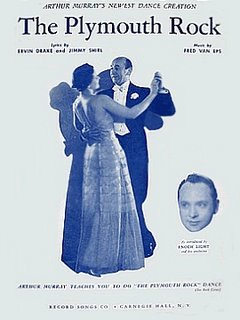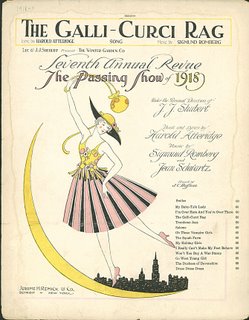I returned home from my usual Thursday hike in the woods with
critic-at-large Moe (who has new reviews coming, he
swears) to find it's now more-or-less official that the Democrats have retaken
both houses of Congress, which, in historical terms, is a fairly significant pasting. Tough luck, Republicans! But, like the song says, it's all in the game.

You don't know that song? You should—it's composition is but one unlikely highlight of one of the more spectacularly adventurous résumés to ever come out of the Republican party. I refer to the career of Vice-President, bureaucrat, banker, Nobel laureate, and, yes, unexpected hitmaker Charles Gates "Hell and Maria" Dawes. (His vice-presidential bust, by sculptor Jo Davidson, is at right.)
Born in Ohio into an illustrious family (look up "William Dawes" in a history of the Revolutionary War sometime), Dawes picked up a law degree before being sent to Nebraska to watch over the real estate holdings of Ohio's ex-governor. There, he became friends with his political opposite,
William Jennings Bryan; Dawes wrote his first book to argue against Bryan's free-silver monetary policies. (Bryan wanted to move off the gold standard to boost prices for farmers; Dawes, as we'll see, tried to do right by farmers in his own way later on.) Dawes had the misfortune to invest in a local bank just before the Panic of 1893, but had enough money to land on his feet, buying some utility companies and moving to Illinois.
In Chicago, Dawes caught the political bug, becoming an influential behind-the-scenes man in Mark Hanna's political machine, which would soon elect William McKinley president. His patronage reward was an appointment as
Comptroller of the Currency, in charge of regulating national banks. In Washington, Dawes was a favorite guest of the President; a self-taught pianist, he often entertained McKinley and his wife at the White House. Dawes ran for the Senate, having been promised a McKinley endorsement, but after McKinley's assassination, new president Theodore Roosevelt threw his support behind his friend Albert Hopkins, and Dawes was defeated.
Dawes returned home and founded the Central Trust Company of Illinois. He retired from public service and concentrated on his family and the banking business. His son Rufus accidentally drowned in 1912; in his memory, Dawes founded the Rufus Dawes Hotel for Destitute Men in Chicago and Boston (the Boston branch still exists as the
Pine Street Inn). He also worked at his music: a "Melodie in A" written in 1911 so impressed a violinist friend that he secretly had the piece published. Dawes was soon surprised to see his photo peering out from the window of a Chicago music store. "I know that I will be the target of my punster friends," Dawes quipped. "They will say that if all the notes in my bank are as bad as my musical ones, they are not worth the paper they were written on." The "Melodie" became a favorite of violinist Fritz Kreisler.
World War I made Dawes a national figure. At 52, he was seemingly too old to serve in uniform, but he had an old Nebraska acquaintance in the army:
"Black Jack" Pershing, soon to be commander of the Allied forces in Europe. Dawes became the chief of supply procurement for the Americans, and later, the American representative on the Military Board of Allied Supply. Such was the origin of his nickname: after the war, a Republican House committee called Dawes to testify in an investigation into war spending, attempting to tarnish the policies of former Democratic president Woodrow Wilson. Asked how much he paid for French horses, Dawes, as was his habit, snapped. "Hell'n Maria!" he said. "I will tell you this, that we would have paid horse prices for sheep, if they could have hauled artillery!" "Hell and Maria" Dawes became a celebrity. (Dawes would insist that the expression was actually "Helen Maria," but nobody really believed him.)
In 1921, Dawes became the first head of what is now the
Office of Management and Budget, and when Germany defaulted on payment of war reparations in 1923, Dawes was called in as the head of a committee to try and fix the mess. The Dawes Plan got Allied troops out of the coal-rich Ruhr valley, adjusted Germany's payment schedule, and financed it with an arrangement of foreign loans and various taxes. For his efforts, Dawes was awarded the Nobel Peace Prize in 1925. While the plan temporarily curbed German hyperinflation, its reliance on foreign money proved excessive as the bloom wore off the economy of the 1920's, and it was superseded by the
Young Plan in the 1930's. Given the eventual disintegration of German society and the rise of the National Socialists, Dawes' Nobel seems, in retrospect, more an expression of hope in the effort than success in the implementation (though, as Peace prizes go, it's nowhere near as absurd as
Henry Kissinger's).
Drafted (as a third choice) as Calvin Coolidge's running mate, Dawes was vice-presidential trouble from the get-go. Addressing the Senate at his inaugural, Dawes blasted the senators for their secrecy and over-reliance on filibustering. The surprisingly harsh speech overshadowed Coolidge's own inaugural address later the same day. The relationship had already been strained when Dawes informed Coolidge that he didn't think his vice-presidential duties included cabinet meetings; it further deteriorated when an ill-timed Dawes nap resulted in the Senate voting not to confirm Coolidge's nominee for Attorney General. Dawes didn't back off, continuing to press his case against the filibuster and working behind the scenes to advance his own agenda. He employed considerable diplomacy to get a major farm relief bill through the Senate; Coolidge vetoed it twice. (Dawes had some history of mildly bucking his own party—he supported the League of Nations, and had convinced McKinley to keep Theodore Roosevelt as his running mate when the rest of the Republican machinery was against him.)
Dawes was unceremoniously dropped from the ticket when Coolidge opted not to seek re-election; a short and unsatisfactory stint as Ambassador to Great Britain ended when President Hoover convinced Dawes to run the newly-formed Reconstruction Finance Corporation, a bank bailout program. Dawes soon had to resign the position, when his own bank, now the Central Republic Bank & Trust, itself needed a loan from the RFC. The Central Republic Bank was soon liquidated; Dawes reorganized under another name and paid back the loan. (The bank was eventually bought by the Chicago giant Continental.)
Dawes died in 1951. That year, lyricist
Carl Sigman, previously responsible for "Arrivederci Roma" and "Pennsylvania 6-5000," wrote words to Dawes' old "Melodie in A."
Many a tear has to fall
But it's all in the game
All in the wonderful game
That we know as loveThe song became a #1 hit for Tommy Edwards, and has subsequently been covered by the Four Tops, Van Morrison, Barry Manilow, Elton John, and others. Ironically, Dawes himself had grown to loathe the tune—as vice-president, brass bands and restaurant violinists had serenaded him with it everywhere he went. As he put it, "General Sherman, with justifiable profanity once expressed his detestation of the tune ‘Marching Through Georgia,’ to which he was compelled to listen whenever he appeared anywhere. I sympathize with his feeling when I listen to this piece of mine over and over."
Acknowledgments to Senate historian Mark Hatfield's biography of Dawes, and Bill Kauffman's article "The Melodious Veep," which provided much of this information.














